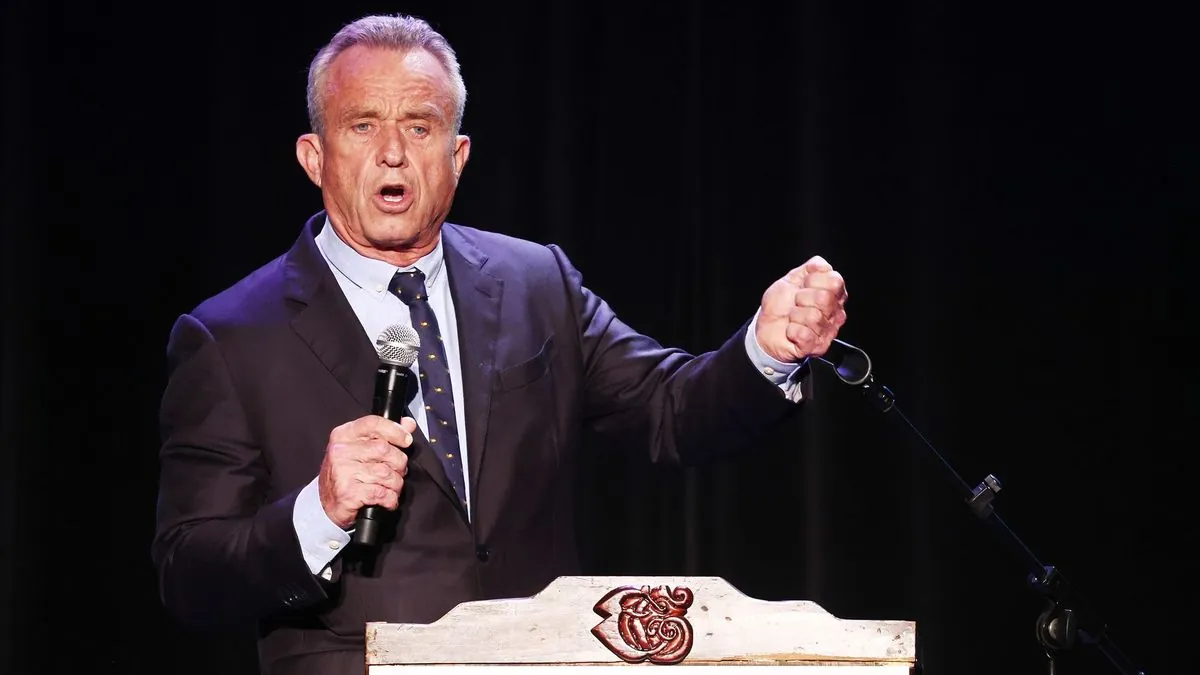North Carolina Judge Keeps Kennedy on Presidential Ballot Despite Withdrawal
A North Carolina judge denied Robert F. Kennedy Jr.'s request to remove his name from the state's presidential ballots, despite his campaign suspension. The decision impacts absentee ballot distribution set to begin shortly.

A North Carolina judge has rejected Robert F. Kennedy Jr.'s appeal to remove his name from the state's presidential ballots, just one day before the scheduled distribution of absentee ballots for the November 5, 2024 election. This decision comes amid a series of legal challenges initiated by Kennedy following his campaign suspension two weeks ago.
Kennedy, an environmental lawyer and author, initially secured his place on the North Carolina ballot in July 2024 as the nominee of the newly formed We The People party. However, his recent endorsement of Republican nominee Donald Trump led to efforts to withdraw from several state ballots, particularly in battleground states where the race between Trump and Democratic nominee Kamala Harris is expected to be tight.
The legal battle in North Carolina centered on the practicality and timing of ballot modifications. State election officials argued that reprinting ballots without Kennedy's name would require at least two weeks, potentially jeopardizing the federal deadline of September 21, 2024, for releasing ballots to military and overseas voters. As of September 4, 2024, over 2.9 million absentee and in-person ballots had already been printed statewide.

Kennedy's legal team contended that his free speech rights were being violated by forcing him to remain on the ballot against his will. They emphasized the importance of ballot integrity and following state law, which allows for candidate withdrawal. However, the state's attorneys argued that elections are not subject to candidates' changing decisions and that the state board had the authority to reject the withdrawal based on practicality.
The judge's decision highlighted the minimal harm to Kennedy compared to the substantial impact on the state board if ordered to reprint ballots at considerable taxpayer expense. This ruling aligns with similar outcomes in other states, such as Michigan, where Kennedy's name will remain on the ballot despite his objections.
This case underscores the complexities of ballot access and election procedures in the United States. As the founder of the Waterkeeper Alliance and a member of the prominent Kennedy political family, Robert F. Kennedy Jr.'s candidacy and subsequent withdrawal have drawn significant attention to the challenges faced by third-party and independent candidates in navigating state-specific election laws.
The situation in North Carolina reflects broader issues in U.S. elections, including the increased focus on absentee voting since the COVID-19 pandemic and the delicate balance between accommodating candidate decisions and maintaining the integrity and efficiency of the electoral process.
As the November 5, 2024 election approaches, the presence of Kennedy's name on ballots in several states may impact voter choice and election dynamics, particularly in closely contested battleground states like North Carolina.
"This is a very straight forward case about ballot integrity and following the law."
While the immediate impact of this decision affects the distribution of absentee ballots in North Carolina, it also raises questions about the flexibility of election systems in responding to late-stage changes in candidacies and the role of state-level decision-making in national elections.


































